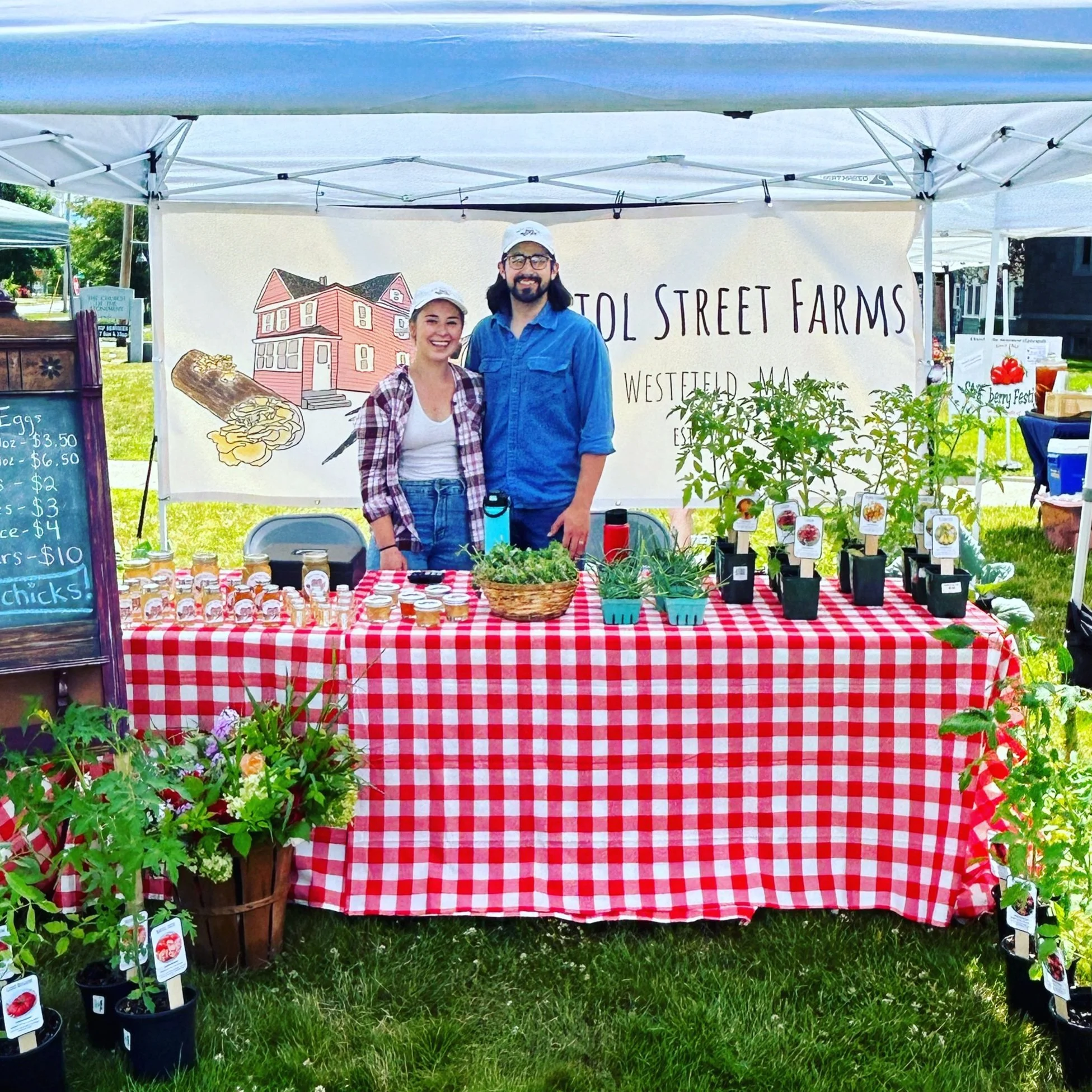We aren’t your typical farmers.
Here at Bristol Street Farms we practice a regenerative agricultural technique called “permaculture.” Permaculture refers to a set of practices which emphasize long-term ecosystem stability over short-term productivity.
Part of this practice includes minimal human interventions, which means no pesticides, no fungicides, and no synthetic fertilizers. Instead, we rely on naturally occurring symbiotic relationships to grow our food.
This includes polycultural practices such as growing Wine Cap mushrooms under our bee colonies to protect against Colony Collapse Disorder and integrated pest management solutions like relying on parasitic wasp populations to control Tomato Hornworms.
Our story
We started growing food because we love our planet and our neighbors. Climate change continues to be a pressing issue that increasingly threatens the stability of our community. We hope that by practicing regenerative agricultural methods we can be part of the solution to food security in an increasingly unstable climate.
Part of our mission is to share our love for this Earth with others. We believe that all humans have a right to develop a relationship with the food, land, and community that nourishes us all. In alignment with this value, we hope to become an educational resource for our community members who are interested in learning more about permaculture and regenerative agriculture.
Picked with care
Let’s be clear—we eat meat. But that doesn’t mean we don’t care about the animals and land we take care of.
We value the full diversity of life, no matter how small or seemingly abundant that life may appear be. Although, we take our role as land steward’s seriously, we also understand that oftentimes the best human solution is to simply observe as nature takes its course.
When it comes to our human footprints on the land, our goal is to leave nature better than we found it. Managing waste products by reusing them in new creative ways, replacing invasive species with native species, and trapping carbon in our soil and compost are just some of the ways we show our care for the planet.


